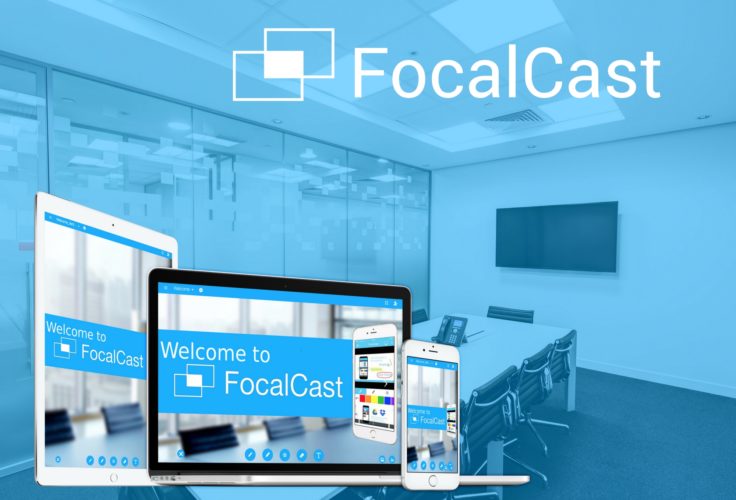Most entrepreneurs will tell you that the team around them makes all the difference in the world. They’re looking for smart, energetic people who can provide value from day one—people who can sell, acquire customers, design, engineer, improve a product or process, or create compelling content to help drive the business forward.
As a career advisor at Olin’s Weston Career Center, I help students understand the possibilities of pursuing a career path in entrepreneurship, providing them with tips and insights and connecting them with startup ecosystems nationwide. I founded PluggedIN HQ, which is an online matchmaking platform for emerging talent with local startups, and the Startup Talent Showcase, one of PluggedIN’s product offerings—a live matchmaking event set this year for February 23 at CIC at the Cortex Innovation District.
As this year’s showcase approaches, here are insights on what startups need, the difficulties they have recruiting talent, and tips for job seekers and startup founders.
Startups globally tend to have issues preparing job descriptions, identifying talent pipelines, recruiting talent, etc. What are the issues—and why?
Most early-stage companies don’t have a talent function—HR department, internal recruiter, hiring process. Often, founders struggle with developing a hiring plan or prioritizing the kind of hires they need to make to drive their business forward, partly because they haven’t hired for particular roles/functions and partly because they have so many things on their plate while running and growing a business.
While there are some job boards where they can post openings, doing so will almost always inundate them with a surplus of passive job candidates who don’t even remember applying to the job, not to mention, know anything about the company. The process takes a lot of time and has questionable results.
Recruiting talent takes resources and startups are resource-strapped. Most can’t afford an agency recruiter, which costs 20 to 30 percent of the candidate’s initial salary. It also takes time, a founder’s most valuable asset.
At the same time, there is no clear pathway for job seekers and students to a city’s startup ecosystem. With the exception of some notable entrepreneurship programs at universities, the majority of college students interested in pursuing careers in entrepreneurship (working at a startup, launching a company or working in VC) don’t know where to look or how to navigate a city’s startup community.
The good candidates who want to be involved in the startup scene simply can’t find their way in. It’s difficult for startups to compete with corporations, consulting firms, and large tech companies (Google, Amazon) that have enormous recruitment budgets and are able to recruit students with irresistible job offers.
What roles are most often “up for grabs” at the Startup Talent Showcase?
In short, all of them. Startups need people who understand the startup environment and can hit the ground running and provide value from day one, whether it’s through building (software development), designing (product development, marketing), selling (business development and sales), growing (strategy), improving or optimizing a product or process using data analytical skills (operations, data analysts), or ensuring customers are deriving value from the product or service (customer success).
Attitude, aptitude, experience—in that order—is what savvy startups look for in a great candidate.
Skill sets, job descriptions, and experience aside, they need people with an all-in, can-do attitude who will commit to the company’s vision and success, develop the necessary skill sets along the way and become experienced contributors to the business.
Why did you start the Startup Talent Showcase in the first place? Tell us a success story.
I led recruitment and hiring for venture fund Cultivation Capital and its portfolio of firms. In this role, I saw first-hand the pains of hiring for startups at various growth stages. At the same time, I received multiple emails daily from college students and job seekers desperately seeking an entry point in the St. Louis startup community.
Rather than serve as a gatekeeper, I wanted to create a space where job seekers and startups could connect (physically) in a more systematized manner.
The format for this event was designed with a few things in mind: minimized risk, cost, and time for the founder; pre-vetted, talented folks who were prepared and ready to pitch to companies; a safe, fun environment for job seekers to learn about the startup community and learn what it takes to be a sought after employee.
WashU senior Devin Goodkin attended the 2016 Startup Talent Showcase, where he landed a summer internship as a data analyst with Gainsight. After completing his Gainsight internship, he networked and navigated his way even further into the local startup community and landed an internship the following summer with Venture Cafe as a special projects and data analysis intern.
He then went on to intern as a venture analyst for Stadia Ventures and venture consultant for local startup Tallify. Since his pitch at the 2016 showcase, he’s been very proactive in his approach for finding a job, with both a great attitude and startup mindset.
“Attendees were expected to give a short speech about their background and what career path they were looking for,” Goodkin explained later. “The event concluded with catered food, drinks and an opportunity to network. It was a creative and fun approach to a career fair.”
What are your top tips for job seekers or startups at the showcase?
For job seekers:
- Create a profile on PluggedIn.
- Do your homework on the companies that will be there. They’ll be listed on the event site.
- Craft a killer pitch that is totally “you.” Lean on your strengths and what makes you unique. Don’t stress out about what a company may or may not want to hear.
- Relax, have fun, and let yourself shine. Remember, all of the founders in the room were once in your shoes.
For startups:
- Post your open job reqs on PluggedIn.
- Think about the kind of person you want in your firm more than the role you want them to fill. If they will fit your culture, you’ll be able to find them a role.
- Brush up on your company pitch. It’s the most important recruitment tool you’ll have at the event.
- Be open-minded and prepared to meet some awesome people. You might even decide to create a job/internship/project at your company because you just clicked with the right person for your team.
One more tip: For graduating students who want to work at a startup, check out Venture for America.






 To enter the competition, you must submit a 30 second pitch:
To enter the competition, you must submit a 30 second pitch: